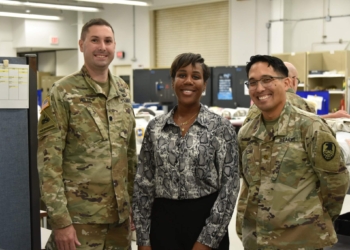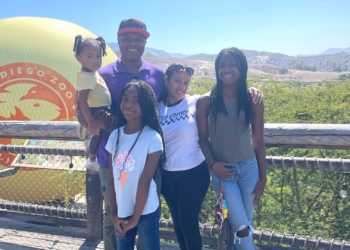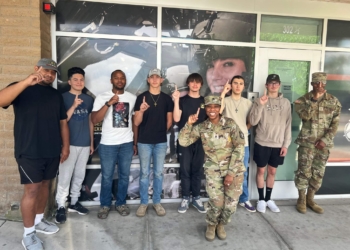When Army Capt. John Bockmann sent an email in 2016 to a well-known British professor and pain expert, he had no idea where his words would eventually land him: on the pages of one of the world’s leading international medical journals.
The Journal of Medical Ethics (JME) published “Reconsidering Fetal Pain,” co-written by Bockmann and National University of Singapore professor Stuart Derbyshire in January 2020.
“At first, it was surreal to see my name next to Stuart’s, but now I take it in stride,” Bockmann, a physician assistant based at Fort Drum, said. “When Stuart wrote me an immediate, serious reply to my initial question in May 2016, I was thrilled and incredulous — just happy for the response.”
Collaboration
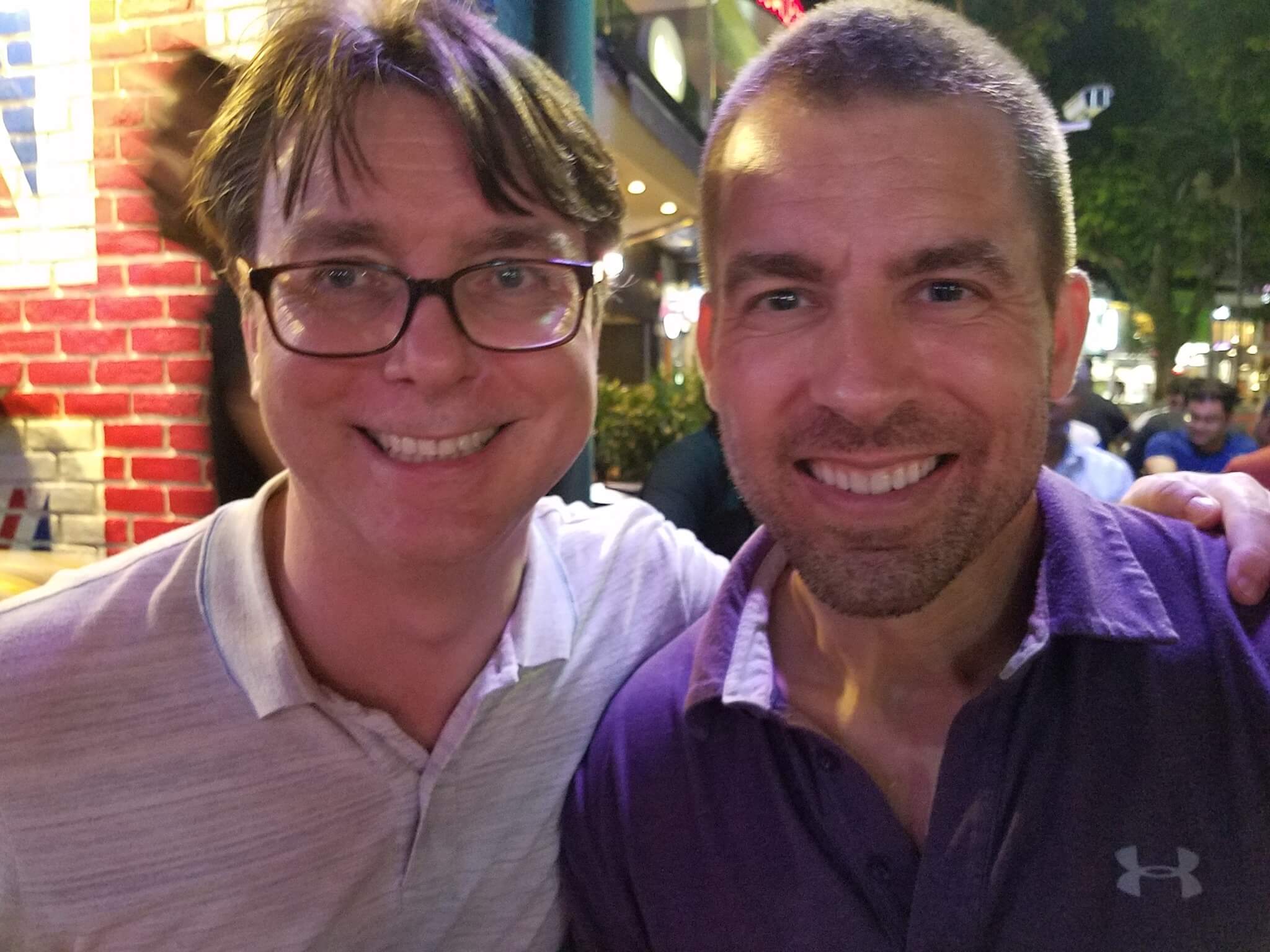
That initial question was surrounding some of Derbyshire’s earlier work on fetal pain. Bockmann, a native Texan, was in the process of writing his master’s thesis in physician assistant studies from the University of Nebraska. The topic focus was on fetal pain, or what humans are capable of physically feeling in utero. Derbyshire’s work came up frequently, as he is considered one of the globe’s foremost authorities on the issue.
After reading a New York Times article in which Derbyshire was quoted, however, Bockmann noticed that the doctor seemingly contradicted his earlier work. Intrigued, he decided to ask Derbyshire directly about it via email. He was not truly expecting a response.
“My thesis was due in less than a month, and I wanted to include his comments. So I looked him up,” Bockmann explained. “He answered me, and I had more questions, so I kept asking. It was quite natural.”
The pair struck up an online, then real-life friendship. In 2018, Derbyshire was asked to write again on the issue of fetal pain scholarship, and he requested Bockmann’s input. Though that paper was ultimately refused by a separate academic journal, it did form the backbone of what would eventually become “Reconsidering Fetal Pain.”
In 2019, Bockmann asked Derbyshire what he would be doing that July, as he was interested in re-working and re-submitting their paper. The professor agreed, and so Bockmann flew to Singapore last summer. After much back-and-forth, “Reconsidering Fetal Pain” was ready for submission, and JME editors accepted it last fall for publication in January.
Bockmann’s and Derbyshire’s professional collaboration is decidedly unusual, as each believes quite oppositely on the morality of abortion. Yet Derbyshire “excels at finding and articulating common ground,” Bockmann said. “That’s why this paper worked.”
That shared work considers the pure science, ultimately concluding from the available evidence that fetuses are likely able to feel pain earlier than previous research had proposed. Furthermore, as the pair wrote, it becomes necessary to consider that “the possibility that the mere experience of pain, without the capacity for self reflection, is morally significant.”
The paper has garnered significant exposure, including coverage from major news outlets and ranking number five of 2,753 JME outputs as judged by quality and quantity of online attention.
“I think it’s received a lot of attention because of who wrote it [Derbyshire], where it was published and what it represents: a departure from most of Stuart’s previous work and the received wisdom on the neurobiology of fetal pain,” Bockmann said.
John of all trades
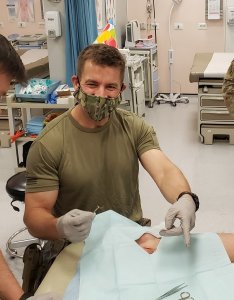 Reaching across the aisle to meet new people and try new things comes naturally for Bockmann, a middle child and father of two. Prior to joining the Army, he worked in grant writing and taught middle school math and English, as well as general fourth and fifth grade studies. After that came earning his commercial pilot license.
Reaching across the aisle to meet new people and try new things comes naturally for Bockmann, a middle child and father of two. Prior to joining the Army, he worked in grant writing and taught middle school math and English, as well as general fourth and fifth grade studies. After that came earning his commercial pilot license.
Next was enlisting in the Army as a Black Hawk mechanic, then applying to become a warrant officer and flying those same Black Hawks beginning in 2007. After that was a direct commissioning to second lieutenant as a medevac officer and pilot in 2011. Just four years later, it was on to physician assistant school. He holds bachelor’s degrees in literature, aeronautical science and science, as well as the aforementioned master’s degree.
Bockmann is currently deployed for the second time to Afghanistan and hopes to someday research and publish more, perhaps as a medical student and physician, he says.
He views his current job as “the opportunity to care for my brothers- and sisters-in-arms,” and he hopes his work with Derbyshire accomplishes far more than mere scientific inquiry.
“I hope [the paper] inspires people to focus on what unites them instead of what divides them,” Bockmann said. “Fusion is greater than fission.”
Read comments
















